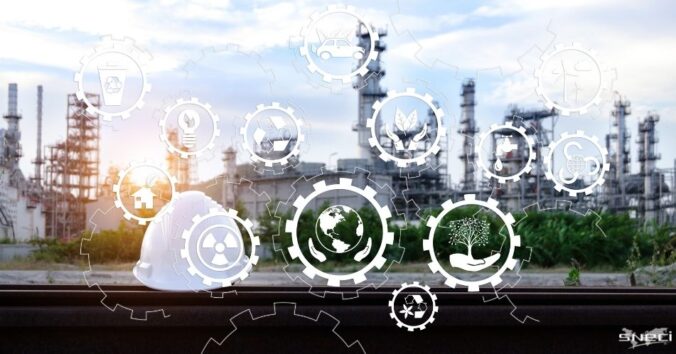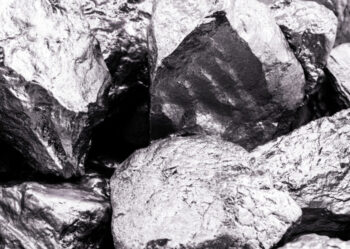Germany hit hard by rising raw materials prices.

The materials are present in all industries, be it automotive, aerospace, pharmaceutical or the machine industry in the broadest sense. With the Covid-19 crisis, the rise in raw material prices, the increase in transport costs, and most recently the war in Ukraine, the dependence of countries on some supplier countries has become problematic today and Germany is being hit hard by the rise in raw material prices for many industries.
Historically, Germany has benefited from global free trade, which allowed it to access products and raw materials at more than competitive rates.
However, the current international situation and the 3-year health crisis have put a strain on the German economy in terms of foreign supplies, as supply chains have broken down and important raw materials have become scarce.
Let’s take a look at the impact on the different German industries.
Concerning the electrical industry :
Germany is highly dependent on its electrical and digital industry for the international flow of goods and the semiconductor crisis has inevitably had an impact. According to the German industry association ZVEI, in 2021, exports worth 225 billion euros were offset by imports worth 222 billion euros.
The breakdown is as follows for 80 billion euros
- 31 billion from the EU
- 24 billion from Asia
- 5 billion from the USA
- 1 billion of preliminary products come from Russia, Belarus and Ukraine, which fortunately limits the impact of the war on the import of raw materials into Germany
To overcome this strong dependence, German companies are invited to diversify their supply chains of raw materials and by November 2021, they were 70% to indicate that they want to do so. At the same time, 65% of the companies indicated that they would like to expand their warehouses according to a ZVEI survey.
However, whether it is diversification or an increase in storage capacity, companies need support. Increasing storage capacity means increasing capital costs, and this is not really in the interest of companies, except for the additional costs involved.
On the other hand, diversification represents a challenge. When this strategy is well implemented, it can quickly pay off and allow savings.
In view of the situation in Ukraine and the conflict that seems to last. More than 60% of German companies expect that new delivery problems for various materials such as metals, wood, and chemicals will worsen in the coming months.
Diversification is therefore needed now!
Energies also affected :
For energies, the same observations apply: in 2021, 71% of German energy needs will come from foreign resources, with in particular :
- 98% for mineral oil
- 95% for natural gas
- 100% for hard coal, which is no longer mined in Germany
Germany has concentrated its domestic energy source on renewable energies and lignite.
The war in Ukraine has strongly affected this dependence on Russian energy supplies.
Moreover, Germany wants to regain its independence in the case of hard coal by autumn 2022, and in the case of oil by the end of 2022. Germany’s Minister of Economics, Robert Habeck (Greens), has indicated that he wants to become ‘largely independent by mid-2024’ in the case of Russian natural resources. This goal reflects efforts to reduce dependence on Russian resources.
Gas and mining operations strongly affected:
Germany is a mining country. Thanks to its national deposits, it does not face big difficulties for its construction raw materials. These materials include sand, gravel, natural stones, rock salt, or quartz sand.
By the way, in 2019, Germany was:
- the third largest producer of raw kaolin,
- the fourth largest producer of rock salt
- the fifth largest producer of potassium salt
On the other hand, for metals and many other industrial minerals, the situation is different since Germany remains strongly dependent on imports. In fact, iron ore for German pig iron production is 100% imported. According to the Federal Institute for Geosciences and Natural Resources (BGR), iron alloys with chromium, manganese, or molybdenum are mainly imported for the stainless steel industry. These imports play a crucial role in meeting the industry’s demands.
The crisis does not spare the automotive industry:
The construction of vehicles requires many raw materials. Russia, for example, is the largest supplier of aluminum through the Russian RUSAL Group. At the same time, Russia and China together hold the largest share of the market for aluminum and magnesium light metals.
In addition to this, conventional iron ore is imported from major producers such as China, Brazil, Australia and India.
However, Russia is also a key supplier of palladium and platinum. These metals are needed for catalytic converters. Additionally, Russia supplies nickel, which is used in many types of batteries, as well as cobalt, manganese, and copper. In addition, in the battery cells of electric cars, the current flows through charged particles (ions) of alkaline lithium. This lithium primarily comes from Australia, China, and Chile.
The chemical and pharmaceutical industries are major consumers of raw materials:
According to the German Chemical Industry Association (VCI), 2.8 million tons of natural gas are required annually by the German chemical industry. The pharmaceutical sector also contributes to this demand.Additionally, 99.3 terawatt-hours of natural gas are needed for steam and electricity production. At the same time, these industries also consume more than 14 million tons of naphtha. So, the energy embargo against Russia is not without consequences. Many companies are therefore thinking about how to reduce their natural gas supply.
SNECI’s support in diversifying suppliers:
Not all companies have a purchasing structure; in this case, SNECI can take over from your purchasing department. We have 70 years of industrial expertise. Additionally, we have a purchasing and logistics department. Combined with the support of our 10 subsidiaries around the world. This allows us to be not only responsive but also agile.
We can help you repatriate your suppliers in Europe through :
- Diversification of your suppliers
- Sourcing: Costing, trade-off, RFI, RFQ
- All or part of the logistics including MAFs to reduce your storage capacity
- Managing your invoice relaunch
- Monitoring of critical suppliers through regular audits and upgrades when necessary
- Optimization of your processes in order to have a Lean approach with Muda to reduce waste and thus make savings
- Improving your processes for greater profitability
- …
If you wish to discuss with our teams, do not hesitate to contact Laura Zimmer by email at laura@sneci.com or directly via the contact tab on our website.





